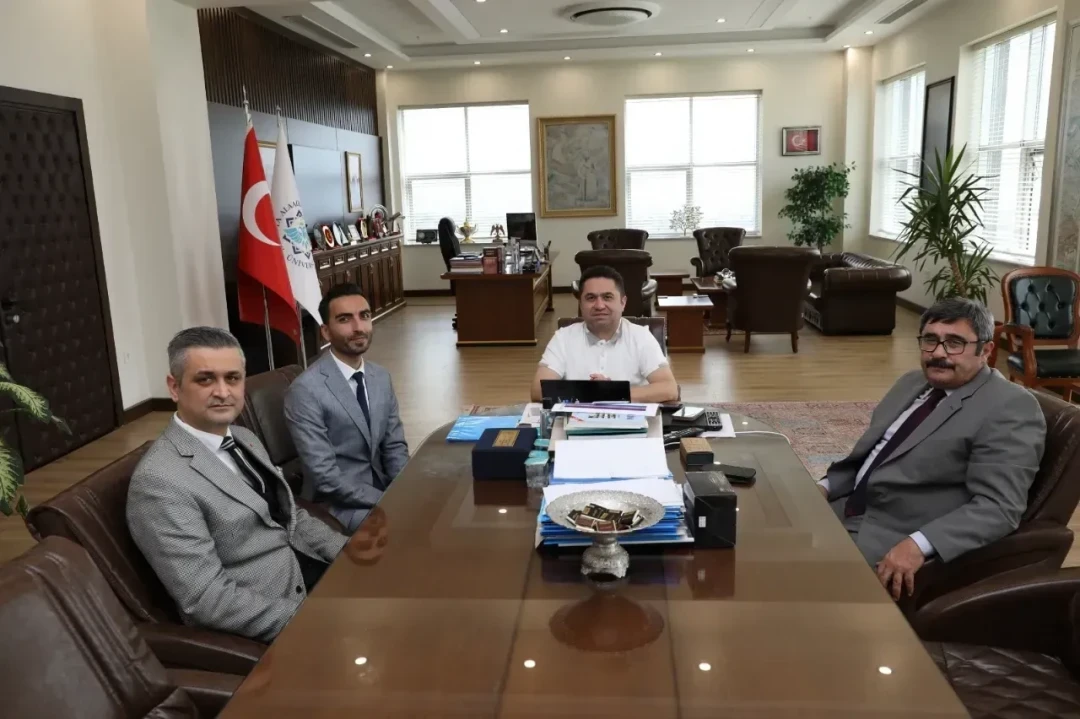ALKÜ's water management project has been approved by the EU

The Interreg NEXTMED Project, led by Assoc. Prof. Dr. Fırat Arslan, a faculty member of the Department of Biosystems Engineering at ALKÜ, has been approved. The project involves Italy, Tunisia, Egypt, Greece, and Turkey as partners. It will be carried out in the Mediterranean region and is considered a pioneering project in managing global water scarcity.
Global warming is intensifying every year, and one of the biggest anticipated global issues is drought and water scarcity. The decreasing water resources are predicted to negatively affect agriculture and human life. Scientists are preparing to carry out a significant project in the Mediterranean region in collaboration with Turkey in response to the threat of drought. In this regard, the project named "Sustainable Water Management for Smart Agriculture in the Mediterranean Regions" (SWAMED), led by Assoc. Prof. Dr. Fırat Arslan from ALKÜ's Rafet Kayış Faculty of Engineering, has been approved by the European Union. The project, with a total budget of 2.7 million euros, aims to fight water scarcity in the Mediterranean region and develop sustainable water management solutions for farmers. It will be carried out in pilot areas in Tunisia, Turkey, Egypt, and Greece for three years. The project is the first major project of ALKÜ and also succeeded in being accepted in the first call of the Interreg Next Med (Mediterranean cross-border cooperation) program.
HOPE FOR OUR REGION
After the EU's approval of the project, Vice Rector Prof. Dr. Mehmet Kılıç, Dean of Rafet Kayış Faculty of Engineering Prof. Dr. Erhan Cengiz, and Assoc. Prof. Dr. Fırat Arslan visited ALKÜ Rector Prof. Dr. Kenan Ahmet Türkdoğan. During the visit, where the project's details were shared, Rector Türkdoğan thanked everyone who contributed to bringing the project to the university. He expressed pride in the project being the first of its kind for the region and said, "As ALKÜ, we will continue to contribute greatly to the agricultural development of the region by carrying out beautiful projects in agricultural fields. The 'Sustainable Water Management for Smart Agriculture in the Mediterranean Regions' project will not only facilitate the work of our farmers but also assist institutions with water management. The results after the implementation of the project will bring hope to our region. I thank our professors who contributed to this important step in the fight against drought. I hope that this project will be beneficial to the entire scientific community and our farmers, especially in these days when drought is intensifying due to global warming."
IMPORTANT PROJECT FOR SUSTAINABLE WATER RESOURCES
Assoc. Prof. Dr. Fırat Arslan, who stated that they have been working intensively on the project for a long time, said, "With this project, which is critical for sustainable water resources, we aim to achieve a 20-30% improvement in water usage. By using the water resources in the Mediterranean Region more efficiently, we aim to increase the sustainability of agricultural production. Additionally, to evaluate the environmental, economic, and social impacts, we plan to contribute to the water management policies of the region by adopting the framework of water, energy, food, and the environment. With the power of technology and data, we will carry out water management more effectively through this project, establishing a water monitoring and management system adaptable to local conditions in these regions. Sensors, drones, and artificial intelligence that monitor parameters such as water quality, soil moisture, temperature, weather, and crop status will enable more efficient water management for farmers. Our project will last for three years, during which we will carry out important work for the sustainable use of agricultural water resources in the Mediterranean Region. I would like to thank our Rector Prof. Dr. Kenan Ahmet Türkdoğan, Vice Rector Prof. Dr. Mehmet Kılıç, Dean of Rafet Kayış Faculty of Engineering Prof. Dr. Erhan Cengiz, the Department of Biosystems Engineering, and everyone who contributed to the project."


